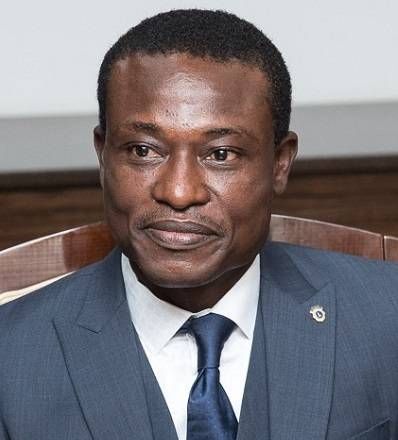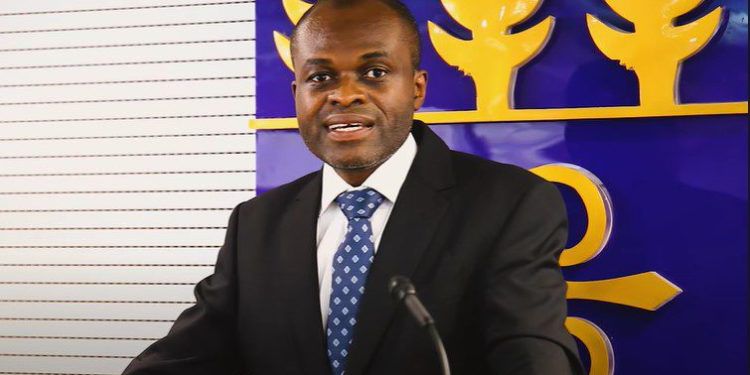On Thursday, 30 October 2025, private legal practitioner Martin Kpebu publicly criticised the Office of the Special Prosecutor (OSP) for what he described as a failure in its investigation of former Finance Minister Ken Ofori-Atta.
Kpebu claimed the OSP allowed Ofori-Atta to travel abroad despite being under investigation in connection with controversial revenue assurance contracts between the Ghana Revenue Authority (GRA) and Strategic Mobilisation Ghana Limited (SML). Speaking on Eyewitness News, he accused the OSP of “super incompetence, almost to the extent of criminal negligence.”
At a separate press briefing the same day, the OSP announced its intention to press charges by the end of November 2025 against several individuals implicated in the GRA-SML contracts. The list includes Ken Ofori-Atta; current and former GRA Commissioner-Generals Dr Ammishaddai Owusu-Amoah and *Emmanuel Kofi Nti; GRA officials *Isaac Crentsil and *Kwadwo Damoa; and former technical advisor to the Finance Ministry *Ernest Akore.
According to the OSP, its investigations uncovered alleged acts of corruption, abuse of office, and procurement breaches in the award and execution of the contracts.
This story matters to Ghana and Africa because it highlights ongoing concerns about integrity, transparency, and accountability in public financial management. The contracts under investigation involve the GRA and SML — agreements that, according to multiple independent investigations, may have bypassed standard procurement procedures.
For Ghana, where efficient tax collection is crucial for funding education, healthcare, and infrastructure, questions about such high-value contracts affect national trust in governance. For Africa more broadly, the case underscores persistent challenges around revenue leakages and contract transparency — key issues for economic independence and sustainable development.
The GRA-SML controversy revolves around a series of revenue assurance contracts designed to monitor production and sales in key sectors, including downstream petroleum, upstream oil, and gold mining. Critics argue that the contracts were awarded under questionable conditions and may have breached procurement rules.
A government-commissioned audit was tasked with assessing whether due process was followed in awarding the contracts and whether the terms offered value for money. Findings from earlier media investigations also raised doubts about SML’s capacity to deliver on the technical aspects of the agreement, intensifying public scrutiny.
Kpebu’s Criticism of the OSP

Kpebu accused the OSP of failing Ghanaians by allowing what he described as the “crown jewel” — referring to the former finance minister — to leave the country during an active investigation. He argued that the OSP should have acted on existing evidence from journalists and civil society watchdogs, rather than delaying action for almost a year.
“You can’t do this. That is what we paid you for,” he said. “You sit down and allow the crown jewel to escape, and now you are giving us tons of press conferences.”
His remarks reflect growing frustration among sections of the public who believe that investigations into politically exposed persons often stall or end without consequence.
The OSP, led by Special Prosecutor Kissi Agyebeng, stated that it intends to proceed with prosecutions by November 2025. Officials said their investigation had uncovered evidence of “corruption-related offences” and “abuse of public office.”
This marks one of the most significant corruption cases pursued by the OSP since its establishment, given the high-profile nature of the individuals involved and the financial magnitude of the contracts.
Earlier in the year, the OSP had declared Ken Ofori-Atta a wanted person after he reportedly failed to respond to invitations for questioning in several corruption-related cases, including the SML-GRA contracts.
Reports indicate that by late 2023, government payments to SML exceeded *US $141 million, despite ongoing concerns about the procurement process and value delivery. The Ministry of Finance had previously indicated that under one of the agreements, SML was entitled to about *0.75 percent of the value of gold produced in Ghana — a clause potentially worth tens of millions of dollars annually.
Given Ghana’s position as Africa’s largest gold producer and a growing oil-exporting nation, these contracts have significant implications for public revenue. Even small inefficiencies or irregularities in such deals can cost the state substantial resources that could otherwise support social and economic development.

If the OSP fails to move forward decisively with this case, public confidence in Ghana’s anti-corruption institutions could further erode. Conversely, successful prosecutions would demonstrate institutional strength and could serve as a deterrent to future misconduct in public office.
For Africa, the case highlights the importance of transparent revenue monitoring systems — not just as a technical issue, but as a governance priority. Public accountability in contracts that handle billions in resource revenues remains essential to economic growth and citizen trust.
The OSP’s pledge to prosecute by the end of November 2025 offers hope that Ghana’s anti-corruption framework can still deliver justice. However, the criticism from Martin Kpebu reveals lingering doubts about the system’s effectiveness and speed. The eventual handling of this case will be a test of Ghana’s institutional resilience and commitment to good governance.
Read also: Mahama Cancels SML Revenue Assurance Contracts After OSP Finds “No Value for Money”

